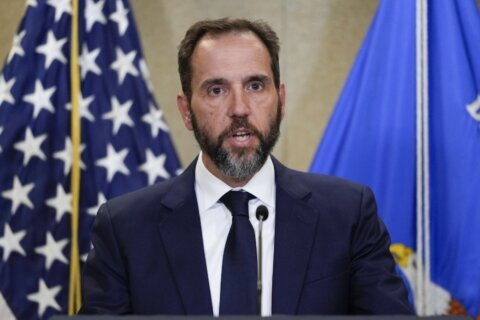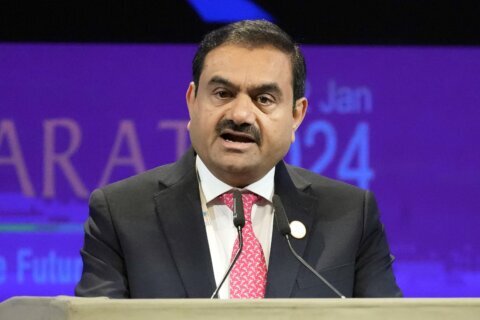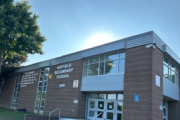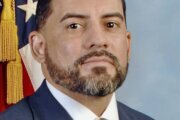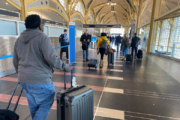Global virology star Dr. Larry Corey is in one of the hottest seats of the COVID-19 pandemic. From his home office in Seattle, he heads the operations center for the COVID-19 Prevention Network, the national collaboration of academic and industry researchers tasked with developing a vaccine (or more likely multiple vaccines) to help end the pandemic.
That means he’s in meetings pretty much all the time. “I’m on Zoom from 5:30 in the morning to 6 at night, and then I go through 300 emails,” he says. He’s coordinating the efforts of dozens of clinical trial sites for multiple vaccine candidates, as well as talking to the media and the public.
Dubbed “Operation Warp Speed” by an administration with a fondness for the theatrical, the quest for an effective COVID-19 vaccine is the most aggressive development project in the history of vaccination, with a stated objective of a working vaccine by early next year.
[Read: Dr. Peter Hotez Combats Antiscience While Working on a Coronavirus Vaccine.]
Corey says one factor that gives it a fighting chance of achieving that goal is the enormous investment — which he launched and continues to oversee — in trying to develop a vaccine for AIDS. “We can just pivot,” Corey says. “We have an incredible infrastructure of very sophisticated laboratories and clinics, and this is what we all do for a living all the time.”
He’s principal investigator of the HIV Vaccine Trials Network, the largest international effort dedicated to developing an HIV vaccine, based at Fred Hutchinson Cancer Research Center in Seattle, where Corey has spent most of his career. He was president of the center from 2010 to 2014 before returning full time to his virology lab. Corey was one of the first people contacted by his longtime friend and research collaborator Dr. Anthony Fauci, head of the National Institute of Allergy and Infectious Disease, when the need for a COVID-19 vaccine rocketed to the top of the national health agenda.
While an AIDS vaccine has eluded decades of research, Corey considers SARS-CoV-2, which causes COVID-19, a more manageable opponent than HIV. “We know we are achieving what we haven’t in HIV: neutralizing antibodies against all circulating strains,” he says. Antibodies are one way that the immune system fights infections and the body automatically tailors them to the invading pathogen as much as it can. Sometimes those pathogens change themselves over time in ways that make the antibodies work less effectively or not at all, and that’s what creates different “strains.” Corey says that luckily, the strains of SARS-CoV-2 seem relatively stable, and that’s good news for the vaccine effort. “HIV mutates at two base pairs an hour and COVID at two base pairs a month,” he says, referring to the small genetic changes in a virus that can alter it enough to eventually render a vaccine ineffective. “And we know some people’s immune systems can clear COVID, which is something you don’t see in HIV.”
Corey first familiarized himself with COVID-19 in January, after returning to Seattle from an HIV conference in South Africa. He routed his flight home away from Europe to avoid the pandemic raging there and spend the next couple of weeks reading up. “What a formidable pathogen!” he exclaims. “I knew we were going to have issues.”
Corey notes that “warp speed” does not apply to the science part of vaccine development, which, being based on biology, cannot be rushed or even sped up significantly from its usual pace. Proving safety and effectiveness must take priority. It’s the paperwork part where the project is trimming weeks, months — even years — from the usual approval process. The studies are designed to get answers in six to seven months, which realistically means results will start coming in by winter at the earliest, Corey says. Meanwhile, manufacturers are cranking out millions of doses on an “at risk” basis even before the trials are complete — meaning they might be thrown away if a vaccine turns out not to work. But if it does, it will be available in quantity immediately.
[Read: Dr. Sanjay Gupta — Holding America’s Hand Through the Pandemic.]
The half-dozen vaccine candidates now in clinical trials take slightly different approaches to the problem, but they all focus on what Corey calls the “landing gear” of SARS-CoV-2: the familiar protein spikes that allow it to attach to the body’s cells. The objective of the vaccines is to train the immune system to make antibodies that attack those spikes. Corey notes that since the vaccines target the outside of the viral particles rather than DNA inside, it won’t be possible for people to get COVID-19 from them.
The contenders have been through the first two phases of clinical trials, tested in small groups of healthy volunteers for safety (Phase 1) and efficacy (Phase 2, which establishes that the vaccine creates a measurable immune response against the virus). Now they’re heading into Phase 3, a larger trial among 30,000 volunteers for each vaccine candidate, to see how well each performs in a larger number of people, to uncover any safety issues that the earlier phases missed, and to see which groups respond best to a particular vaccine. These larger trials should catch any variations based on age, sex, ethnic group, health status or other factors.
Phase 3 testing for multiple vaccines requires a lot of volunteers, and Corey encourages people to sign up at the network’s website. “We need the citizens of the U.S. to help us find out how well these work,” he says, and the more that people sign up, the more likely it is that the trials will find enough volunteers with the exact characteristics they want to study. The research centers conducting the trials will also be recruiting volunteers directly.
Corey has long been one of the nation’s premier virologists. In the 1980s, he worked with Nobel Prize-winning biochemist and pharmacologist Gertrude Elion (“Aunt Trudy” to Corey’s kids) to develop acyclovir, the first effective drug against herpes. He’s led pioneering research on AZT, the first effective AIDS drug, and on the antiviral “cocktails” that have transformed HIV infection from an automatic death sentence to a manageable chronic disease. His wife’s father worked for the March of Dimes, the organization founded by Franklin D. Roosevelt to fight polio, and Jonas Salk, inventor of the first polio vaccine, attended his wedding.
[See: Dr. Anthony Fauci: Fighting the Coronavirus Pandemic ‘Is My Entire World.’]
A life-changing posting during the Vietnam War turned Corey away from his original goal of being a cardiologist and introduced him to his life’s work doing battle with viruses. Medical students could postpone their military service until they finished residency, and then join the Public Health Service. After completing his medical training at the University of Michigan, Corey was sent to the Centers for Disease Control and Prevention in Atlanta and was assigned to the viral disease division. “Those two years changed my life,” he says. “I had a wonderful time.” At the CDC he studied Reye’s syndrome, a rare swelling of the brain and liver in children. The syndrome was most likely to appear after they were given aspirin during bouts of flu or chicken pox. His group discovered that acetaminophen doesn’t trigger Reye’s syndrome. That’s why today’s parents give their children Tylenol for fevers, and the product formerly known as “baby aspirin” has been rebranded as “low dose” aspirin with stern warnings not to give it to children.
Corey doesn’t have time to volunteer for a vaccine trial himself, nor would he want to show favoritism to one particular candidate. “We want them all to work,” he says. Though he has no particular expectations, he’d love to see one or more vaccines that are at least 80% effective. He misses being able to fly down to California to see his grandchildren, and his monthly dinners with Fauci at their favorite Washington restaurant. “When there’s an effective vaccine, I’m going to be in line to take it.”
More from U.S. News
What Are the Symptoms of Coronavirus?
Fear, Courage, Grit: Meet More Than 50 ‘Hospital Heroes’ in Pictures
Global Virology Star Dr. Larry Corey Leads the Hunt for a COVID-19 Vaccine originally appeared on usnews.com

